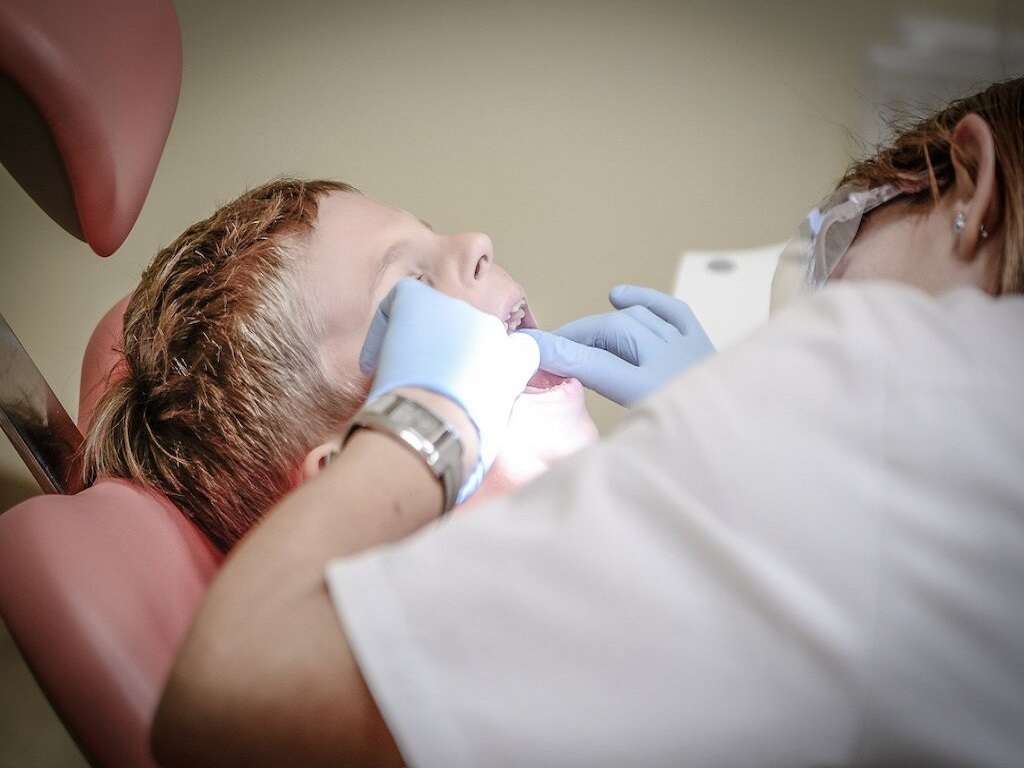10 Drinks that Help Sore Throats
A sore throat, also called pharyngitis, is an irritating, scratching, and painful feeling in the throat that can be extremely uncomfortable. It is one of the most common illnesses with 13 million cases making it to medical facilities annually.
Sore throat causes include exposure to dry air, smoking, shouting, allergies, snoring, and gastroesophageal reflux disease. Other causes of sore throats include viral infections like the common cold, flu, measles, and mononucleosis, and bacterial infections like strep throat.
When you have a sore throat, all you want is something to help get rid of it. Unfortunately, a sore throat normally sticks around for up to a week. Still, there are ways in which you can make this time more bearable. Here are 10 drinks that help sore throats.

Drink #1: Apple Cider Vinegar
Apple cider vinegar is a popular medicinal drink that has been used for thousands of years for conditions such as indigestion, and for hair and skin issues. Apple cider vinegar is also a great drink that can help soothe the throat and relieve the pain of a sore throat. Acetic acid is the main active ingredient in apple cider vinegar. This mild acid has antibacterial and antiviral properties. Organic apple cider vinegar also contains beneficial microorganisms called probiotics.
When used to treat a sore throat, apple cider vinegar reduces the pain and destroys bacteria and viruses that are lodged in the throat. Add one tablespoon of apple cider vinegar in a glass of warm water, stir, and drink. You may also add a tablespoon of honey to improve taste and make the drink even more potent.

Drink #2: Clove Tea
While you probably know it for its culinary uses, clove also has many medicinal uses. The dried flower buds have antibacterial, antifungal, antiviral, antiseptic, pain relief, and antioxidant properties. For this reason, clove is a common ingredient in health and beauty products like toothpaste, soaps, perfumes, and other personal care products.
Clove can help soothe and relieve sore throat pain. Clove also kills microbes that may be partly responsible for the sore throat. This supports the healing process and prevents further infection.
To make clove tea, boil water and add 1–3 teaspoons of ground clove buds. Let the mixture stand for 5–10 minutes, strain, and drink a glass of the tea two to four times a day.

Drink #3: Chicken Soup
Chicken soup is a comforting food that helps in the recovery from colds and flu. Chicken broth is also an easy way to get some food past your sore throat. It is packed full of nutrients like magnesium, potassium, and proline and glycine amino acids, which have anti-inflammatory properties. You can also enrich the chicken soup with vegetables and spices like hot or sweet peppers, kale, leeks, and chives.
These vegetables have powerful anti-inflammatory and antioxidant properties that support your body’s immune system and help you to heal. You may buy ready-made chicken soup in a can, or make your own by cooking chicken bones in water, along with your favorite natural flavorings.

Drink #4: Ginger Tea
Ginger is a popular spice and medicinal root. It contains powerful antioxidants and anti-inflammatory phytonutrients and also has antibacterial properties. Ginger also boosts the immune system to prevent and fight infection. A drink of ginger tea soothes your sore throat besides killing harmful bacteria, fungi, and viruses in the throat and the oral cavity. Studies have shown that ginger’s anti-inflammatory capabilities are similar to those of the nonsteroidal anti-inflammatory drugs like ibuprofen.
Other studies have established that ginger stimulates increased production of glutathione, a powerful antioxidant in the body. To make ginger tea, add one tablespoon of grated ginger to a one liter of boiling water. Cover and let it steep for about 10 minutes. Add a tablespoon of honey to sweeten it and drink a glass every few hours.

Drink #5: Peppermint Tea
Peppermint has powerful anti-inflammatory and slightly numbing properties. Peppermint also has a sweet taste which makes it easy to take without the need to add a sweetener. These properties come in handy when you have a sore throat. Drinking peppermint tea soothes the throat and significantly reduces the pain.
You can purchase ready-made peppermint tea and use it to get relief from a sore throat. Alternatively, use fresh peppermint leaves to make your own. Put a bunch of peppermint leaves in a pot of boiling water, steep for 3–5 minutes, then strain. Once cool, pour one glass and drink. Repeat this treatment three to four times a day.

Drink #6: Chamomile Tea
You probably know that chamomile tea can help calm the nerves and induce restful sleep. But there is more to it than that. Different civilizations have used chamomile medicinally for thousands of years, and science is now waking up to the reason why it works. Studies have established that the chamomile plant has infection-fighting and pain-relieving properties. Drinking chamomile tea when you have a sore throat helps soothe your throat and reduce the pain. Additionally, chamomile helps you to sleep well and longer, which gives your body the opportunity to heal.
You can order chamomile tea online or buy it from grocery stores and supermarkets. You can also use fresh chamomile leaves to brew your own tea.

Drink #7: Lemon Water
Good old lemon is a panacea for many types of illnesses including colds, flu, indigestion, and more. Lemons have been in use for centuries. The fruit is rich in vitamin C, which helps in healing and in protecting the body from infections. Lemons also contain natural citric acid in addition to antioxidant compounds. These properties make the lemon a powerful aid in managing sore throats.
Lemons stimulate increased production of saliva, which helps keep the throat lubricated, thereby reducing the scratching feeling. The combination of lemon and water soothes the throat, helps it heal, and keeps it hydrated. To make lemon water, squeeze juice from half a lemon into a glass of warm water, stir, and drink. Repeat every 2–3 hours to relieve your sore throat.

Drink #8: Honey
While bees probably only make honey for their own use, humans have indulged in its use as food and medicine for centuries. Research shows that the human race has used honey as food and medicine for more than 5,000 years. This makes it one of the oldest medicinal compounds known. Honey helps in the treatment of wounds, allergies, colds and flu, coughs, digestive problems, arthritis, skin issues, and fighting infections among others. It is also a potent medicine for sore throats.
While it is mainly composed of sugars, honey has antibacterial and anti-inflammatory properties. It also contains powerful antioxidant compounds, vitamins C and D, and minerals like zinc among others. This is probably due to the wide range of plants from which bees gather nectar and pollen to produce honey. Mixing honey with other drinks for sore throats like lemon, water, and ginger makes it even more potent.

Drink #9: Turmeric Milk Drink
Turmeric is a potent medicinal plant that is used in the prevention and treatment of many conditions including colds and sore throats. Turmeric has powerful antioxidant and anti-inflammatory properties. Turmeric is also antimicrobial. Many of these properties can be attributed to curcumin, which is the best known active compound in turmeric. A lot of research on turmeric in the past few decades has established that this yellow tuber indeed provides potent arsenal against inflammation and infections.
Combining turmeric with black pepper and milk and drinking it when you have sore throat helps reduce inflammation, reduce the pain, and stimulate healing. You can make turmeric milk by adding one teaspoon of turmeric powder and a half teaspoon of black pepper powder to a cup of warm water. Stir and drink. Repeat this treatment three or four times in a day.

Drink #10: Licorice Root Tea
Licorice root is used medicinally to treat various conditions including sore throat. It has pain relief properties similar to aspirin, which comes in handy when you have a sore throat. You may gargle or drink licorice tea to get some relief from sore throat pain.
Studies of participants who were due for major surgery found that gargling with licorice tea before surgery reduced the risk of post-surgery sore throat caused by breathing tubes. Studies also found that gargling with licorice water after surgery also reduces sore throat pain. To make licorice tea, put one tablespoon of ground licorice root into a cup of hot water, steep for 5 minutes, strain, and drink or use for gargling. You can repeat the treatment several times daily.












